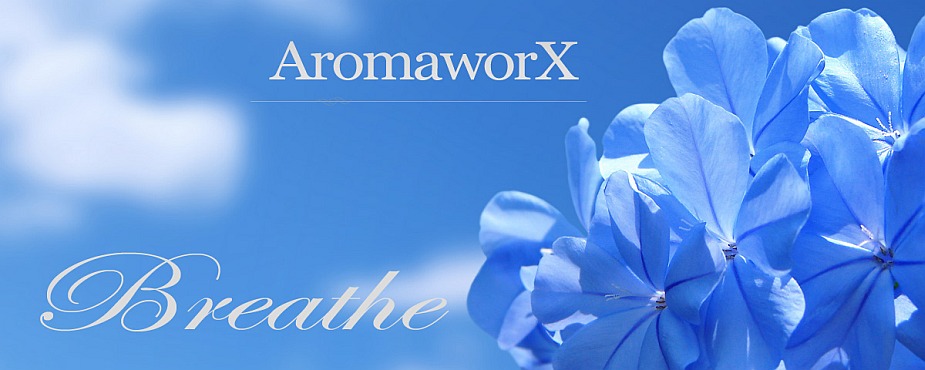Government Report Offers More Evidence Cannabis is a Wonder Drug for Cancer and Good Health
- Details
- Written by AndEl

Alex Pietrowski
As the world’s most beloved herb, Cannabis, continues to be liberated from the persecution of the government and the pharmaceutical-industrial complex, research continues to validate the many health benefits of Cannabis. This time, The National Cancer Institute, a government-funded organization has released a report indicating that cannabis and cannabinoids are indeed powerful agents of good health and wonderful supplements in the fight against cancer.
The report begins with an important summary of the history of Cannabis:
“Cannabis use for medicinal purposes dates back at least 3,000 years.[1-5] It was introduced into Western medicine in the 1840s by W.B. O’Shaughnessy, a surgeon who learned of its medicinal properties while working in India for the British East Indies Company. Its use was promoted for reported analgesic, sedative, anti-inflammatory, antispasmodic, and anticonvulsant effects.
In 1937, the U.S. Treasury Department introduced the Marihuana Tax Act. This Act imposed a levy of $1 per ounce for medicinal use of Cannabis and $100 per ounce for recreational use. Physicians in the United States were the principal opponents of the Act. The American Medical Association (AMA) opposed the Act because physicians were required to pay a special tax for prescribing Cannabis, use special order forms to procure it, and keep special records concerning its professional use. In addition, the AMA believed that objective evidence that Cannabis was harmful was lacking and that passage of the Act would impede further research into its medicinal worth.[6] In 1942, Cannabis was removed from the U.S. Pharmacopoeia because of persistent concerns about its potential to cause harm.[2,3]
In 1951, Congress passed the Boggs Act, which for the first time, included Cannabis with narcotic drugs. In 1970, with the passage of the Controlled Substances Act, marijuana was classified as a Schedule I drug. Drugs in this category are distinguished as having no accepted medicinal use. Other Schedule I substances include heroin, LSD, mescaline, methaqualone, and gamma-hydroxybutyrate.
Despite its designation as having no medicinal use, Cannabis was distributed to patients by the U.S. government on a case-by-case basis under the Compassionate Use Investigational New Drug program established in 1978. Distribution of Cannabis through this program was discontinued in 1992.[1-4] Although federal law prohibits the use of Cannabis, the table below lists the localities that permit its use for certain medical conditions.
The main psychoactive constituent of Cannabis was identified as delta-9-tetrahydrocannabinol (THC). In 1986, synthetic delta-9-THC in sesame oil was licensed and approved for the treatment ofchemotherapy-associated nausea and vomiting under the generic name dronabinol. Clinical trials determined that dronabinol was as effective as or better than other antiemetic agents available at the time.[7] Dronabinol was also studied for its ability to stimulate weight gain in patients with AIDS in the late 1980s. Thus, the indications were expanded to include treatment of anorexia associated with human immunodeficiency virus infection in 1992. Clinical trial results showed no statistically significant weight gain, although patients reported an improvement in appetite.[8,9]
Within the past 20 years, the neurobiology of cannabinoids has been analyzed.[10-13] The first cannabinoid receptor, CB1, was identified in the brain in 1988. A second cannabinoid receptor, CB2, was identified in 1993. The highest concentration of CB2 receptors is located on B lymphocytes andnatural killer cells, suggesting a possible role in immunity. Endogenous cannabinoids (endocannabinoids) have been identified and appear to have a role in pain modulation, control of movement, feeding behavior, and memory.[11]
The effective chemical agents in cannabis that is being isolated for research are then described in this report:
“Cannabinoids are a group of 21-carbon–containing terpenophenolic compounds produced uniquely by Cannabis sativa and Cannabis indica species.[1,2] These plant-derived compounds may be referred to as phytocannabinoids. Although delta-9-tetrahydrocannabinol (THC) is the primary psychoactive ingredient, other known compounds with biologic activity are cannabinol, cannabidiol (CBD), cannabichromene, cannabigerol, tetrahydrocannabivarin, and delta-8-THC. CBD, in particular, is thought to have significant analgesic and anti-inflammatory activity without the psychoactive effect (high) of delta-9-THC.”
The report then goes on to outline several key potential benefits of cannabis that should be noted in the race for a cure for cancer, and also in the debate to further legalize cannabis in the United States.
Cannabis protects against cancer:
“One study in mice and rats suggested that cannabinoids may have a protective effect against the development of certain types of tumors.” They continue; “Cannabinoids may cause antitumor effects by various mechanisms, including induction of cell death, inhibition of cell growth, and inhibition of tumor angiogenesis invasion and metastasis. One review summarizes the molecular mechanisms of action of cannabinoids as antitumor agents. Cannabinoids appear to kill tumor cells but do not affect their nontransformed counterparts and may even protect them from cell death.”
Cannabis targets and kills lung cancer and breast cancer cells:
“An in vitro study of the effect of CBD on programmed cell death in breast cancer cell lines found that CBD induced programmed cell death, independent of the CB1, CB2, or vanilloid receptors. CBD inhibited the survival of both estrogen receptor–positive and estrogen receptor–negative breast cancer cell lines, inducing apoptosis in a concentration-dependent manner while having little effect on nontumorigenic, mammary cells.”
Cannabis has anti-inflammatory effects and may be beneficial for the treatment of colon cancer:
“In addition, both plant-derived and endogenous cannabinoids have been studied for anti-inflammatory effects. A mouse study demonstrated that endogenous cannabinoid system signaling is likely to provide intrinsic protection against colonic inflammation.[23] As a result, a hypothesis that phytocannabinoids and endocannabinoids may be useful in the risk reduction and treatment of colorectal cancer has been developed.[24-27]“
Cannabinoids may assist in the uptake of other cancer drugs, increasing their effectiveness:
“CBD may also enhance uptake of cytotoxic drugs into malignant cells. Activation of the transient receptor potential vanilloid type 2 (TRPV2) has been shown to inhibit proliferation of human glioblastoma multiforme cells and overcome resistance to the chemotherapy agent carmustine.[28] In an in vitro model, CBD increased TRPV2 activation and increased uptake of cytotoxic drugs, leading to apoptosis of glioma cells without affecting normal human astrocytes. This suggests that coadministration of CBD with cytotoxic agents may increase drug uptake and potentiate cell death in human glioma cells.”
Cannabis stimulates appetite:
“Many animal studies have previously demonstrated that delta-9-THC and other cannabinoids have a stimulatory effect on appetite and increase food intake. It is believed that the endogenous cannabinoid system may serve as a regulator of feeding behavior. The endogenous cannabinoid anandamide potently enhances appetite in mice.[29] Moreover, CB1 receptors in the hypothalamus may be involved in the motivational or reward aspects of eating.[30]“
Cannabis is an effective analgesic and pain medication:
“Cannabinoids may also contribute to pain modulation through an anti-inflammatory mechanism; a CB2 effect with cannabinoids acting on mast cell receptors to attenuate the release of inflammatory agents, such as histamine and serotonin, and on keratinocytes to enhance the release of analgesic opioids has been described.[34-36] One study reported that the efficacy of synthetic CB1- and CB2-receptor agonists were comparable with the efficacy of morphine in a murine model of tumor pain.[37]“
After presenting this important information the report then goes on to discuss the pharmacology of cannabis, a summary of clinical research on cannabis, and even the negative effects of it’s consumption, which do include a risk of cancer, although this is rather inconclusive.
As the report states, “cannabis has been used for medicinal purposes for thousands of years,” and only recently has it been targeted for prohibition. At a time when cancer is now the leading cause of death of children and cancer rates are climbing for everyone, those without safe access to medical cannabis absolutely deserve the right to add this to their medicine cabinet if they so choose.

About the Author
Alex Pietrowski is an artist and writer concerned with preserving good health and the basic freedom to enjoy a healthy lifestyle. He is a staff writer for WakingTimes.com and an avid student of Yoga and life.
Sources:
- http://www.cancer.gov/cancertopics/pdq/cam/cannabis/healthprofessional/page1
This article is offered under Creative Commons license. It’s okay to republish it anywhere as long as attribution bio is included and all links remain intact.
Liked this article? Dive deeper into personal growth and wellness! Check out CrystalWind.ca for spiritual wisdom or explore AromaWorx.ca for natural well-being tips. Spread the positivity—share this with friends on their happiness journey!
Let’s Chat! Drop Your Thoughts Below! ![]()
Disclaimer Health
All post and information provided within this blog is for educational and informational purposes only, and is not to be construed as medical advice or instruction. No action should be taken solely on the contents of this website. Please consult with your healthcare professional before making any dietary or lifestyle changes or taking supplements that may interfere with medications. Any products or information discussed are not intended to diagnose, prevent, treat or cure any illness, disease or lifestyle. Please consult your physician or a qualified health professional on any matters regarding your health and wellbeing or on any opinions expressed within this website.
CrystalWind.ca does not promote, condone or advocate licit or illicit drug use. CrystalWind.ca cannot be held responsible for material on its website pages, or pages to which we provide links, which promote, condone or advocate licit or illicit drug use or illegal activities. CrystalWind.ca disclaims all warranties with regard to the information included in its pages. In no event shall CrystalWind.ca be liable for any special, indirect or consequential damages in connection with the information contained within these pages or pages to which we provide links.
CrystalWind.ca reserves the right to make changes and improvements to any information contained within these website pages, at any time and without notice and cannot be held responsible for any inconveniences caused by subsequent changes.
CrystalWind.ca makes no warranty, express or implied, including the warranties of merchantability and fitness for a particular purpose, or assumes any legal liability or responsibility for the accuracy, completeness, or usefulness of any information, apparatus, product, or process disclosed, or represents that its use would not infringe privately owned rights.

Imagine a world of inspiration and healing, free for all—made possible by YOU!
Donate Now—Ignite the Magic at CrystalWind.ca!

Epilepsy - Finding A Cure
Your donation can make a difference!
Help us find a cure – donate now!





































































































































